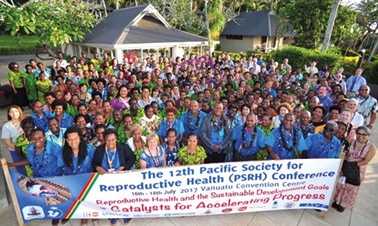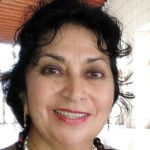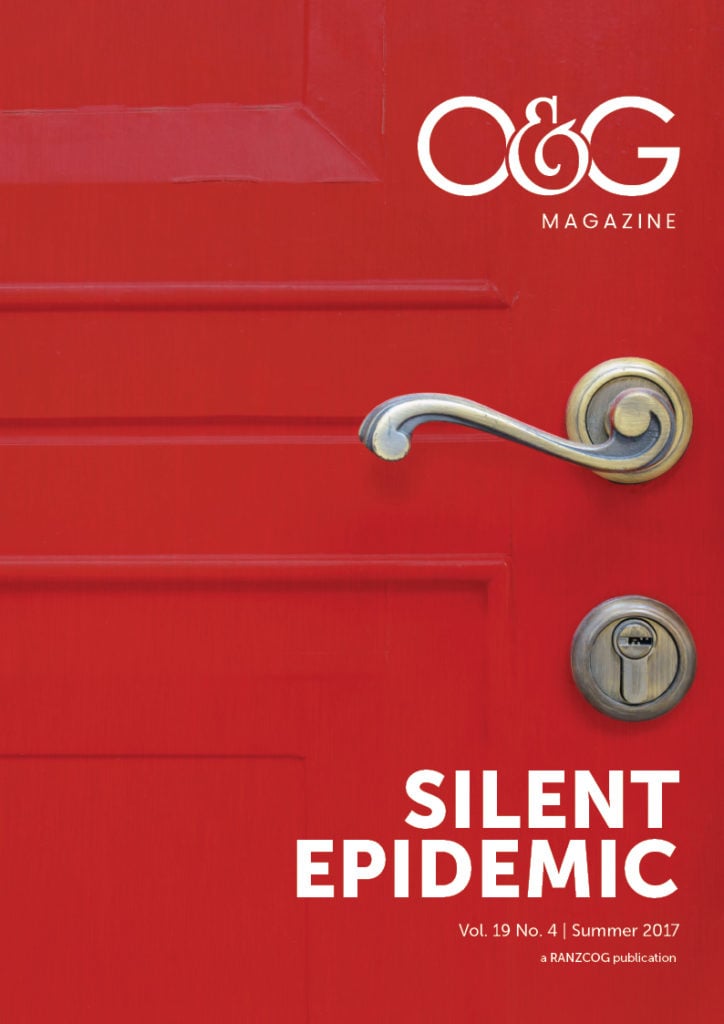Over a period of six days during July 2017, the Pacific Society for Reproductive Health (PSRH) held a number of educational training workshops followed by the PSRH 12th biennial conference in Port Vila, Vanuatu. More than 300 health professionals attended the conference. It was a busy, educationally stimulating and thought-provoking time for us as leaders and providers of reproductive health services to women in the Pacific.
The Society has a strong role in advocating for women’s health and support for the medical and midwifery workforce who provide the service across the Pacific Island Countries (PICs), and we are proud that this role is being increasingly recognised across the Pacific, Australia, New Zealand and globally. PSRH seeks to provide support for women’s health providers, who range from those working in small health posts in a remote island province of Vanuatu or Papua New Guinea, to those working in academic departments responsible for training the next generation of O&Gs for our PICs. Our educational workshops, meetings and events provide an invaluable opportunity to enhance the professional development of our members through educational updates and creates opportunities for networking, collaborating and sharing our experiences, challenges and updates on what is working well, or not so well, in our workplaces.
For those of us in senior roles, this includes looking at the big picture of sexual and reproductive health, from advocacy for measures that will empower women in their health and wellbeing, to being proactive and informed about emerging trends in disease, case management, clinical governance and care for the health and wellbeing of our workforce.
Our membership includes academic and clinical O&Gs, public health specialists, midwives, nurses, reproductive health program analysts and managers, researchers, educators and community health workers. The common denominator for all our members is our work in reproductive sexual health in the Pacific and our commitment to a higher standard of health for women and their families. We hold our biennial conferences in a different PIC every two years and I encourage members of RANZCOG to come to our meeting, share some Pacific hospitality and learn about the Pacific region we inhabit.
The theme of our conference this year was: ‘Reproductive Health and the Sustainable Development Goals – catalysts for accelerating progress’. This theme is in line with the global agenda of the Sustainable Development Goals, a blueprint to improve health and development in the 15-year period, 2016–2030.
The event started from 13–15 July with six technical skills workshops conducted in parallel sessions: Pacific emergency maternal and newborn training, including early essential newborn care; family planning; research and clinical audit; repair of obstetric tears; ultrasound in maternity care; and colposcopy, with the main conference held 15–18 July at the National Convention Centre.
The conference discussed a number of areas, including best practices in maternal and newborn health; health workforce development in obstetrics and gynaecology; midwifery; maternal death surveillance and response; family planning and the unmet needs; prevention of cervical cancer; gender-based violence; adolescent sexual and reproductive health; and leadership in the workplace. In addition to the conference sessions, a side session ‘Practice Improvement Marketplace Stalls’ was set up that allowed midwives to showcase best practices and innovative methods for improving maternal and newborn health in their own settings.
The biennial general meeting elected members to the PSRH Board. I was honoured to be elected President for the ensuing two-year period. My elected Board members are Dr Kara Okesene-Gafa, Vice President (NZ); Ms Paula Pauwe, Vice President (PNG); Dr Roy Watson, Honorary Treasurer (Australia); Dr Gunzee Gawin, Honorary Secretary (PNG); Ms Kathy Gapirongo, Past President (Solomon Islands) and general members Ms Nancy Pego, (Solomon Islands), Tagiyaco Vakaloloma (Fiji) and Dr Errollyn Tunga (Vanuatu). We also have Dr Alec Ekeroma (Honorary CEO) who manages our secretariat in Auckland.

PSRH conference attendees.
Recommendations from the Conference
The PSRH forum brings together senior leaders in obstetrics, gynaecology and midwifery. From the wide experience and expertise at the conference, fine-tuned through a post-conference strategy meeting, the PSRH Board has identified a number of recommendations that form the basis for developing an action plan to guide the work of the Society in the next biennium.
These recommendations are reported in the Executive Summary of the meeting as follows:
Recommendation 1: Establish a comprehensive cervical cancer prevention and control program
- Cervical cancer is the most common female cancer in the Pacific, contributing to disease burden and causing more than 1500 premature deaths per year in the region. These deaths can be prevented if pre-cancer status is detected and treated early. Primary and secondary prevention strategies that are effective and practical for PIC settings should be pursued.
- PSRH made strong commitments to develop a Pacific-appropriate guideline on comprehensive cervical cancer prevention to help countries address this problem. PSRH will embark on collaborating with governments and key partners in the region to pursue this agenda.
A multi-country technical working group on cervical cancer prevention will be coordinated by PSRH to oversee the development of this program and facilitate its progress.
Recommendation 2: Support health workforce development in obstetrics and gynaecology
- The shortage of health workforce in midwifery and obstetrics is a long-standing problem in the Pacific and affects the quality of service delivery in maternal-newborn care. The issue needs to be positioned high on the agenda of development and in the discussions among governments and development partners.
- PSRH is well-positioned to engage in advocacy dialogue with donors and development partners to leverage resources and sponsorship for strengthening health institutions (midwifery schools, Fiji National University [FNU] and the University of Papua New Guinea [UPNG]) to produce adequate numbers of well-trained obstetricians and gynaecologists for the Pacific region.
Recommendation 3: Strengthen the capacity of midwifery training institutions to produce increased numbers of midwives to meet national targets
- Shortage of midwives has been a long-standing problem that hinders the provision of essential maternal-newborn care at all levels of the health system. Increasing the numbers of midwives to fill in the large number of vacancies is critical to make progress in quality of care, especially at primary care level.
- The midwifery segment of the PSRH Board will work with governments and development partners to reassess the situation in the Pacific and develop strategic plans that are practical and affordable in addressing the issues.
Recommendation 4: Increase contraceptive uptake and reduce the unmet need for family planning in the region
- Family planning is an effective intervention for reducing maternal and newborn deaths and should be strongly promoted to couples and individuals as a key component of the essential maternal health package.
- PSRH will collaborate with countries, donors and development partners on innovative ways to reach more people with effective contraception, with a focus on long-acting methods of contraception, and addressing the unmet needs.
As with any large conference, it takes many partners working together to contribute to the delivery of workshops and the conference itself. PSRH thanks the main sponsors of the conference, the Pacific Community and the United Nations Population Fund for their generous support and contribution that made the conference possible, as well as the Vanuatu government for its hospitality in hosting the conference. We also acknowledge with gratitude the support of the Australian Society for Cytology and Cervical Pathology, FNU, UPNG, World Health Organization, United Nations UNICEF, RANZCOG, Fiji O&G Society, Papua New Guinea Society of O&G, Australian College of Midwives, New Zealand Midwifery Council, Midwifery Societies from Fiji, Solomon Islands and Papua New Guinea, and the assistance from the governments of Australian and New Zealand.
PSRH looks forward to continuing our strong and supportive relationship with RANZCOG and its members and we hope to welcome many of the RANZCOG membership to our next conference.
Members of RANZCOG are welcome to our next conference in PNG in 2019 and can join PSRH via the online application, psrh.org.nz/apply-online. Donations to support our work are always welcome at psrh.org.nz/donation.






Leave a Reply